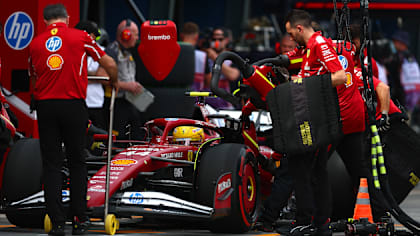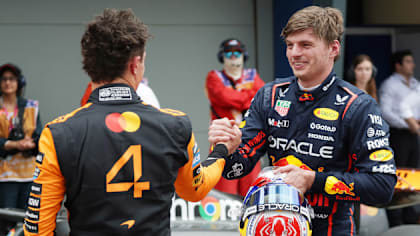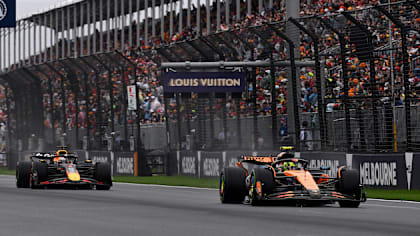It may have been the final Grand Prix before the mid-summer break, but there was no let-up in the development race at Hockenheim, with floors being one of the areas targeted the most…
Williams
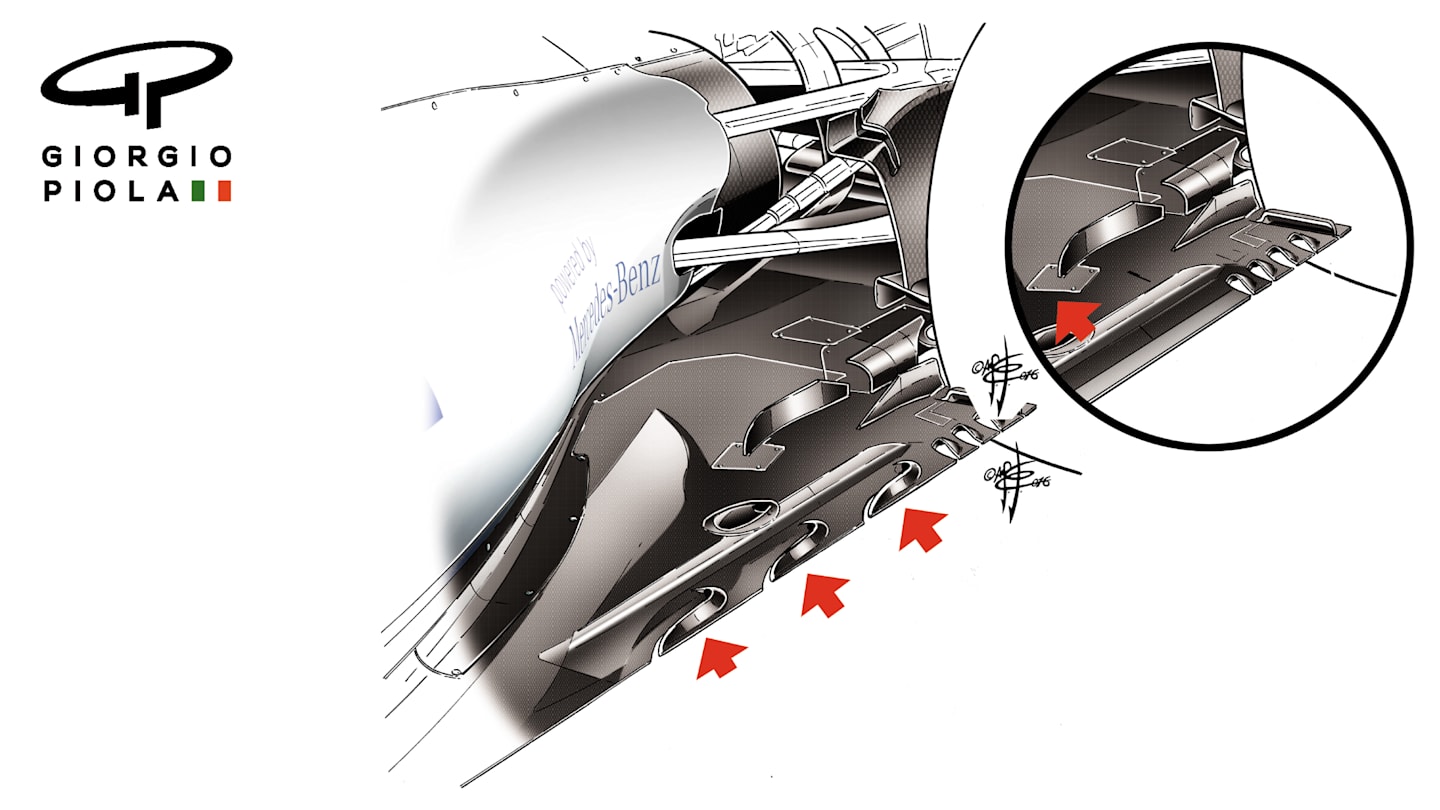
In Hungary Williams introduced a new floor to the FW38 as part of a raft of measures aimed at improving performance, but with just one available it was only used on Valtteri Bottas’s car. However, in Germany both Bottas and Massa had the new-spec floor available to them, and both ran it with the latest nose and front wing assembly that was introduced but not used in Budapest.
The new floor features three new L-shaped slots (indicated by the red arrows) compared to the old solution (inset), but has one less slot at the rear of the floor.
The new slots are similar to those introduced by Toro Rosso in 2015, with Mercedes one of the teams to have taken on a similar design.
The idea behind the three slots is to clean up airflow that has been diverted laterally by the rear tyre deforming under load - a phenomena that can inhibit diffuser performance.
McLaren
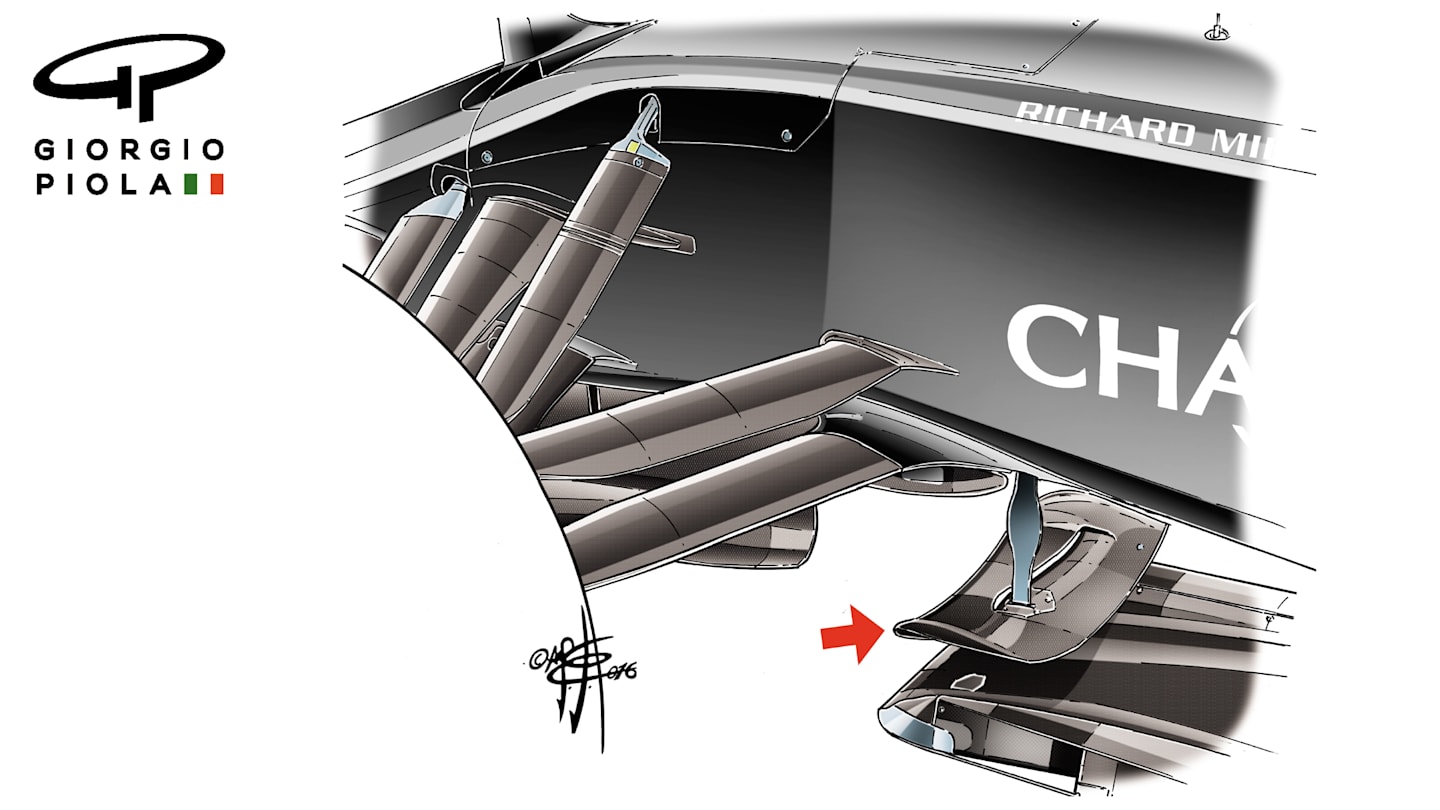
McLaren took a leaf out of Red Bull’s book in Germany with the introduction of a new ‘Batman’ winglet (indicated by the red arrow) just above the tea tray underneath the front of the chassis.
The purpose of this aerodynamic addition, which was trialled on Fernando Alonso’s car during FP2, is to improve airflow along the length of the car, particularly around the sidepods. Red Bull have used a similar device since the start of the season.
Toro Rosso
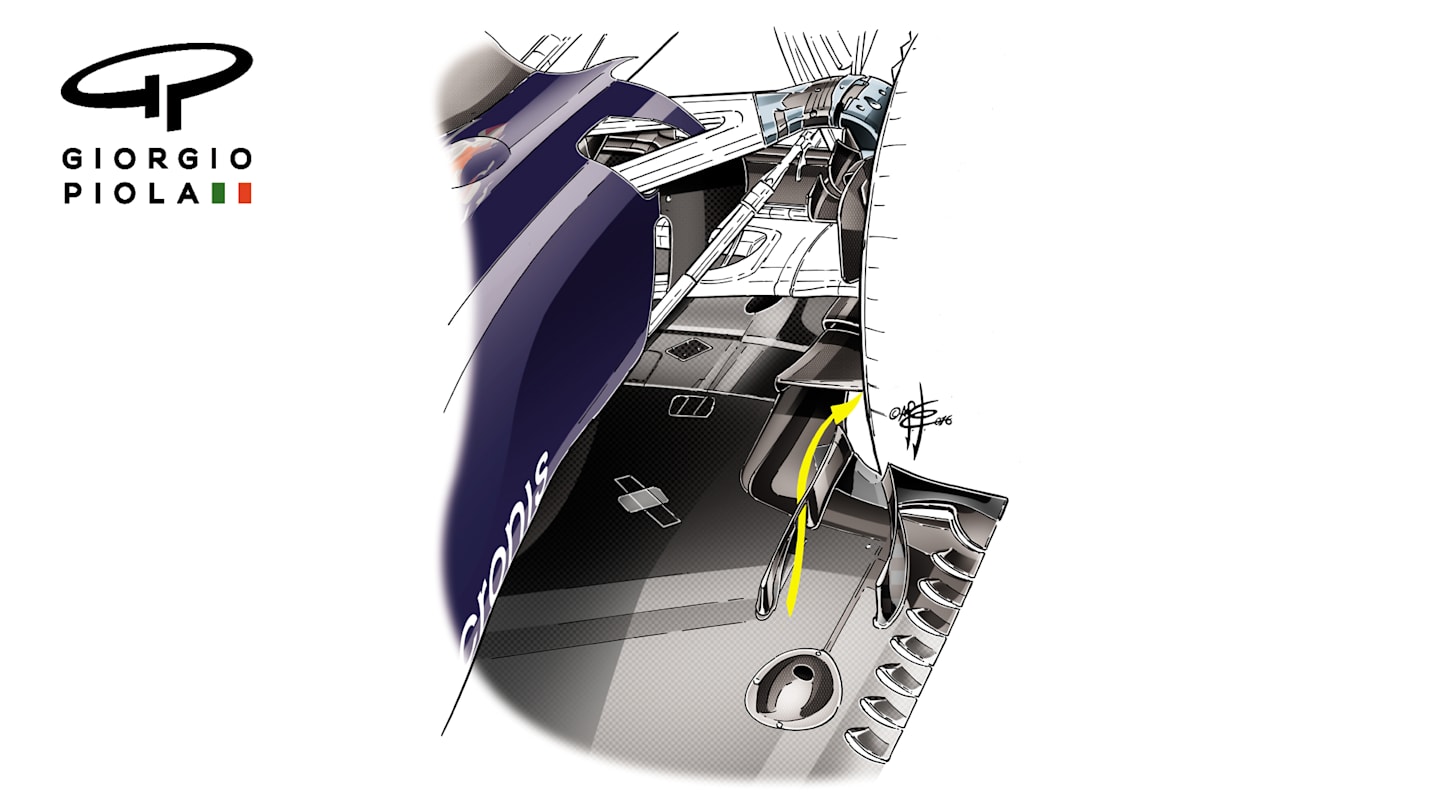
In a bid to improve downforce, Toro Rosso introduced some alterations to the floor of the STR11 in Germany, the most prominent of which was to the inboard fin just ahead of the rear tyres.
In contrast to before, this fin now has a slot in the middle of its length, thereby allowing air (yellow arrow) to move more efficiently around the rear tyres and towards the brake ducts.
Ferrari
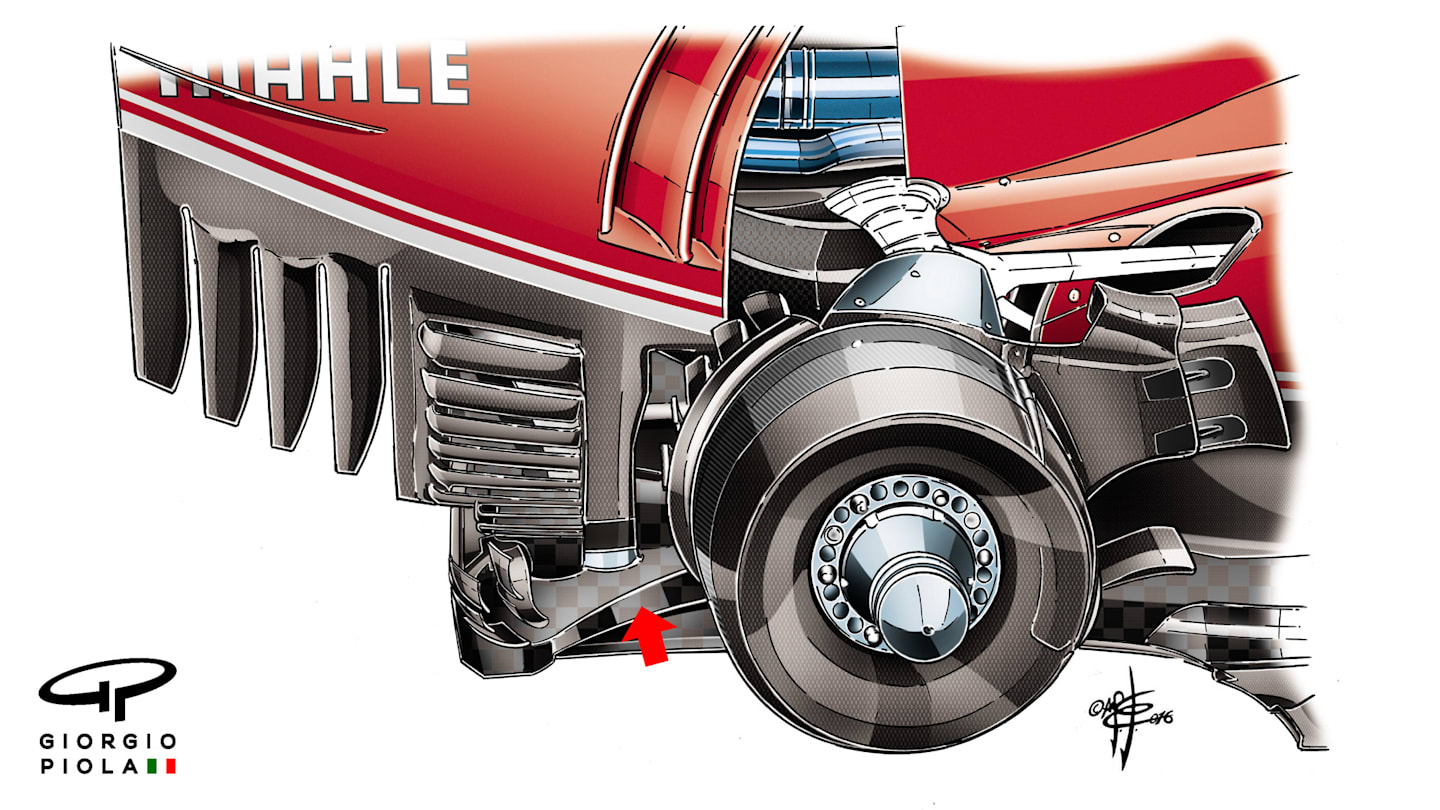
In Germany Ferrari retained the rear diffuser updates introduced in Hungary. This drawing offers another view of the innovative long fin (indicated by the red arrow) on the external section of diffuser, inside the rear tyres, which has been designed to create a vortex in order to improve efficiency of the extraction of air from under the diffuser section.
